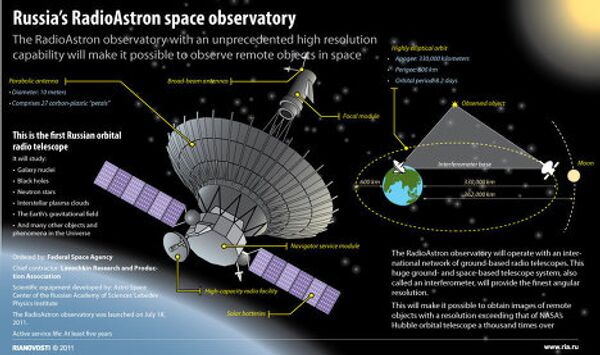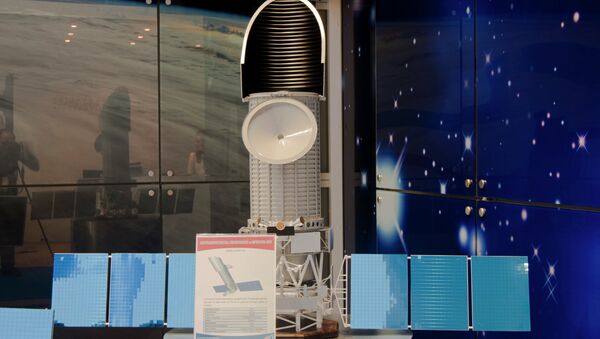MOSCOW, November 27 (Sputnik) – The United States is trying to block the implementation of a major international project on the creation of a satellite observatory by banning the supply of certain technology to Russia, the Izvestia newspaper reported Thursday.

"…this year, the United States introduced additional restrictions on the supply of high-tech products to Russia and this has affected our contract," Boris Shustov, director of the Institute of Astronomy of the Russian Academy of Sciences told Izvestia, explaining that Roscosmos (Russia's Space Agency) has signed a contract with the British e2v company on the supply of radiation-detecting technology, which uses US parts, for the Spektr-UV project.
According to Shustov, e2v has assured Roscosmos that it will be able to manufacture the banned parts on its own and has asked for the contract with Russia to be extended for an additional year and a half.
The Spektr-UV project, also known as World Space Observatory-Ultraviolet, or WSO-UV, is meant to facilitate observations in the ultraviolet spectrum, which cannot be conducted by telescopes based on Earth. The Spektr-UV telescope will be similar to the US Hubble Space Telescope (HST).
The launch of the Spektr-UV telescope was earlier planned for 2016, but, according to Shustov, the telescope will most likely be launched in 2020.



